Arantxa has co-founded and lead several collectives that promote sortition and deliberation since 2012. From 2017 to 2019, she has been involved in the design and implementation of Madrid’s Observatory of the City. She has also developed the website Democracia Por Sorteo.
About
We are an international network of organizations, associations, and individuals helping decision makers take hard decisions and build public trust.

Mission
We collaboratively develop, implement, and promote ways to improve democracy, from the local to the global level.
Vision
We envision democracies that incorporate everyday people in major public decisions which our present structures struggle to address – through processes that are representative, deliberative, free from manipulation, informed, and influential.
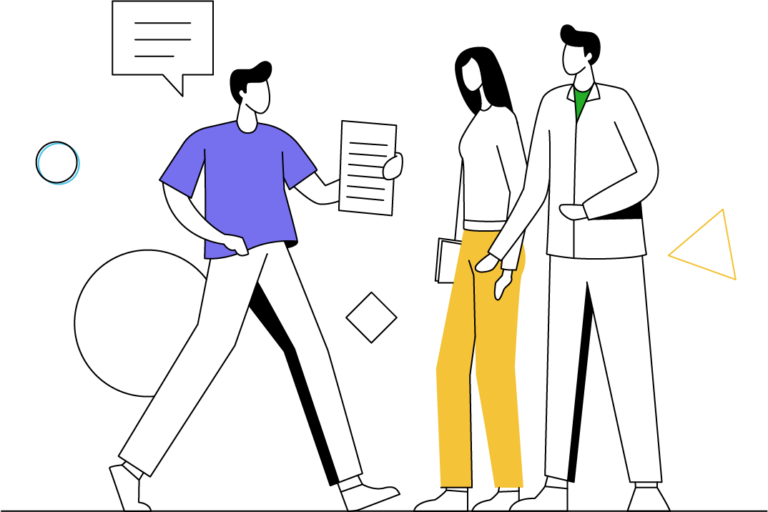
Principles
Representative
We form groups of everyday people using random selection in order to ensure a diversity of views. Selecting participants in this way also limits conflicts of influence and partisan pressures.
Deliberative
We give these groups time, wide-ranging information, and the opportunity to talk through differences. This facilitated process results in a weighing of trade-offs and sound policy suggestions.
Impartial
We express no position on any policy outside of the need for democratic innovation, and we work hard to make our processes as fair and unbiased as possible.
Influential
We negotiate authority with decision makers in advance to increase the likelihood of action. Everyday people are unimpressed by tokenism and their efforts should have an impact on decision making.
How we are funded
Support & funding
The Democracy R&D network is happy to disclose all our contributors, listed here.
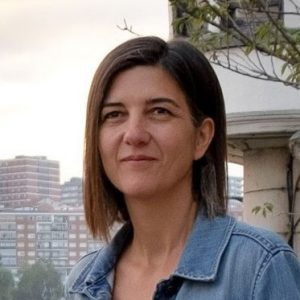
Arantxa Mendiharat
Spain
Individual Member

Bertelsmann Stiftung
Germany
Member Organization
The Bertelsmann Stiftung (Foundation) is a leading German think tank which develops solutions to contemporary societal challenges. Through its democracy program the Foundation seeks to foster citizens’ participation. It explores how the EU can be more participatory. It analyses existing participation forms, explores how new ones can be established and pilots participatory innovations.

Carolyn Hendriks
Australia
Individual Member
Carolyn is a researcher and educator at the Australian National University. She has published widely on public deliberation in contemporary governance. Her latest book (with Ercan & Boswell, OUP), Mending Democracy looks at how to strengthen connections in our democratic fabric.

Center for Deliberative Democracy
USA
Member Organization
Developed Deliberative Polling® as an attempt to use public opinion research in a new and constructive way. The resulting changes in opinion represent the conclusions the public would reach, if people had opportunity to become more informed and more engaged by the issues.

Centre for Deliberative Democracy and Global Governance
Australia
Member Organization
The Centre for Deliberative Democracy and Global Governance acknowledges the Ngunnawal people, traditional custodians of the lands where Bruce campus is situated. We wish to acknowledge and respect their continuing culture and the contribution they make to the life of Canberra and the region. We also acknowledge all other First Nations Peoples on whose lands we gather.

Citizen Juries c.i.c.
United Kingdom
Member Organization
Citizens’ Juries put the public into public policy-making. A cross-section of the public are recruited (e.g. 18 people), provided with independently-validated information from expert witnesses, and deliberate together to find answers to the policy questions they have been posed.
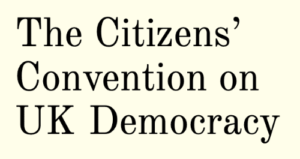
Citizens’ Convention on UK Democracy
United Kingdom
Member Organization
The Convention would take the form of an ambitious and inclusive deliberation on democratic reform in the UK, aimed at developing our democracy to be more open, accountable, receptive, participatory and transparent. The process would involve randomly selected citizens, convened to learn, discuss and make decisions on how our democracy can be improved – which would then go before Parliament.

Claudia Chwalisz
France
Individual Member
Claudia leads the OECD’s work on innovative citizen participation and co-edits the OECD publication Participo. She is the co-author of Catching the Deliberative Wave (2020) and the author of The People’s Verdict (2017) and The Populist Signal (2015).

Consortium for Science, Policy, and Outcomes
USA
Member Organization
A leader in convening citizen-focused technology forums throughout the US, the CSPO is an intellectual network aimed at enhancing the contribution of science & technology to society’s pursuit of equality, freedom, and quality of life. The CSPO creates knowledge and methods, cultivates discourse and fosters policies to help decision makers grapple with the immense power of emerging science & technology.

Danish Board of Technology Foundation
Denmark
Member Organization
Works to ensure that society’s development is shaped by informed and forward-looking cooperation between citizens, experts, stakeholders, and decision-makers. They have designed and implemented a range of different engagement and co-creation methods at the local, national, European and global level, including the Consensus Conference and World Wide Views.

Delibera Brasil
Brazil
Member Organization
Works to enable citizen participation for more informed and consequential decisions, oriented for common good. The team’s plural background on survey research, public opinion, education, social and political sciences support planning and conducting of mini-publics adapted to diverse conditions as well as integrated with decision making and legislative processes.

Democracy R&D network – capacity building phase 2
Switzerland
Member Organization
In terms of the activities of this project, launching the work in (1) communications and advocacy, within the framework of ACDF (building Awareness, Capacity, Demand, and Funding for deliberative democracy) is the first priority, followed by (2) collaborative learning and knowledge productions, followed by (3) community building.

The Büro für Freiwilliges Engagement und Beteiligung
Germany
Member Organization
The Büro für Freiwilliges Engagement und Beteiligung (Office for Citizen Engagement and Participation) aims to support a cultural transformation process towards more cooperation within society by supporting people and organizations to find solutions for current sociopolitcal issues. Their activities are split into civic engagement, citizen participation, and regional & sustainable development.
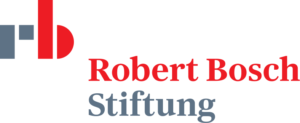
Field building for deliberative democracy
Germany
Member Organization
We propose to launch a new program area in the network – deliberative democracy “field building”. We want to increase awareness, capacity, demand, and funding for public deliberation, within countries, within regions, and internationally.

Democracy R&D network – capacity building phase 2
Switzerland
Member Organization

New Frontiers of Deliberative Democracy
Washington, DC
Member Organization
The NFP was established to pursue two primary objectives: promoting the successful adoption and adaptation of deliberative democracy approaches in the Global South and strengthening the capacity of practitioners, advocates, and public officials in these regions to advocate for, practice, and institutionalize public deliberation. To meet these objectives, the project focused on three “frontiers” of deliberative democracy: institutionalization, South-North learning, and difficult issues. These objectives remain at the core of the project’s mission.
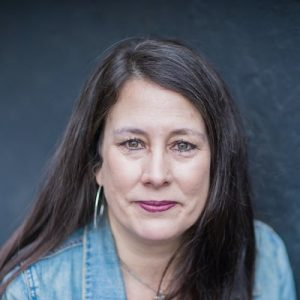
Wendy Willis
United States
Individual Member
Wendy Willis is the founder and director of Oregon’s Kitchen Table at Portland State University and the Executive Director of the Deliberative Democracy Consortium. Wendy is also a poet and essayist. Her most recent book of essays is These are Strange Times, My Dear.
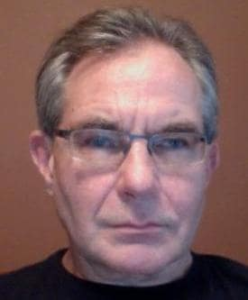
Mark Warren
Canada
Individual Member
A democratic theorist interested in democratic innovations, Warren is currently working with an international team on The Participedia Project, which uses a web-based platform to collect data about democratic innovation and participatory governance around the world.
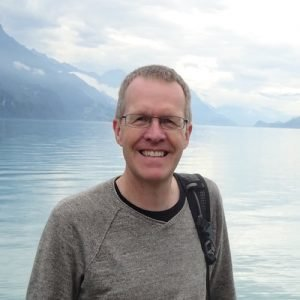
Graham Smith
United Kingdom
Individual Member
Graham is the Director of the Centre for the Study of Democracy at the University of Westminster, and Chair of the Foundation for Democracy and Sustainable Development. He is a specialist in democratic theory and politics, with particular expertise in participatory democratic institutions. He is a recognized authority on citizens’ assemblies and other deliberative processes and was one of the organizers of the Citizens’ Assembly on Brexit.
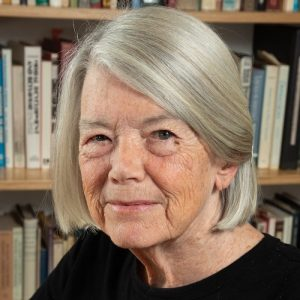
Jane Mansbridge
United States
Individual Member
Jane Mansbridge has been active in social movements since the mid-sixties. As a scholar at the Harvard Kennedy School, she specializes in democratic theory, particularly participatory democracy, deliberation, and representation. She is the author of Beyond Adversary Democracy and other works.

Carolyn Hendriks
Australia
Individual Member
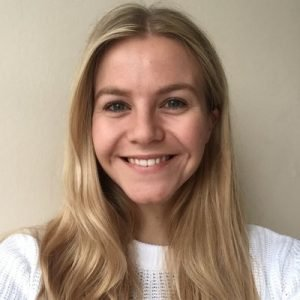
Niamh Webster
Scotland
Individual Member
Niamh leads on public engagement using digital technology as Digital Engagement manager. Her work is closely linked to the governments the role in the international Open Government Partnership. She is working to embed deliberative democracy and explore the potential of digital.

Arantxa Mendiharat
Spain
Individual Member
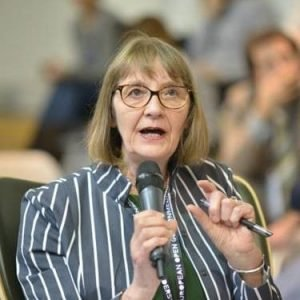
Doreen Grove
Scotland
Individual Member
Doreen leads Scottish Government’s involvement in the Open Government Partnership at both a National and International level. In Scotland, Open Government supports the reform of public services, the renewal of democracy, promotes openness and transparency.
Members
We are an international network of organizations, associations, and individuals helping decision makers take hard decisions and build public trust.
Organizations

Agency for Citizen Participation Baden-Wüerttemberg
The Baden-Württemberg Dialogic Citizen Participation Service Center is a service offered by the state to all authorities and administrations to support citizen participation. It has grown out of the staff unit of the State Councillor for Civil Society and Citizen Participation. It provides advice and support free of charge and unbureaucratically.
Amplify
Australia
In July 2024 we’re launching a non-for-profit organisation called Amplify, which seeks to re-engage, connect and support the Australian people in the shaping of our country’s future.
We want to provide people with access to the information they need and a space to share stories, discuss ideas, find common ground and develop shared solutions. We will amplify these solutions to help Australia’s decision-makers make the bold reforms Australia needs to reach its potential.

Analyse & Tal
Denmark
Analyse & Tal specialises in quantifying complexity: we map social phenomena and tendencies, measure attitudes and behaviour, and quantify digital and social movements. Our work provides insight into complex topics such as volunteering, digital spaces, democracy and participation, the spread of hate speech, mis- and disinformation. We identify patterns and communicate our findings with precision and thoroughness.

Arantzazulab
Arantzazulab is a laboratory for innovation in governance and democracy. It aims to deepen and disseminate collaborative governance by reflecting, researching and experimenting with new models of relationships between public institutions and civil society, with a view to empowering people, promoting collaborative governance of public policies and strengthening democracy.
Arantzazulab has a clear mission: “To be the main space in our country for the development of knowledge on collaborative governance to deepen democracy, at the service of citizens, the institutional system and social actors”.
Located in the Gandiaga Topagunea centre in Arantzazu, the ultimate goal of the laboratory is to spread the culture of collaboration in society, to become a meeting and active learning point for citizens, and to offer new tools and knowledge to increase citizen involvement and participation in the public agenda.

Assemble America
United States
Seeks to upgrade American politics by bringing Citizens’ Assemblies to the center of the national discourse and turn them into a new feature of government. To that end, fosters and empowers a non-partisan, diverse, participatory movement through initiatives in networking, advocacy, and awareness.

Bertelsmann Stiftung
Germany
The Bertelsmann Stiftung (Foundation) is a leading German think tank which develops solutions to contemporary societal challenges. Through its democracy program the Foundation seeks to foster citizens’ participation. It explores how the EU can be more participatory. It analyses existing participation forms, explores how new ones can be established and pilots participatory innovations.

Bureau Burgerberaad
Netherlands
Is a young non-profit organisation, that in a short time has managed to put citizens’ assemblies on the map in The Netherlands. It strives for a future-proof and inclusive democracy and stimulates citizens’ assemblies with impact. It does so through high level advocacy, public campaigns, knowledge development, quality monitoring, advising decision makers, and training deliberative professionals.

Center for Developing Democracy
Estonia
Based on the ideas of Karl Popper, Francis Fukuyama, Daron Acemoglu and others, we believe the most fundamental preconditions for societal development are the separation of powers, rule of law and democratic accountability that together enable ideological pluralism in a society.

Center for Environment Education
Centre for Environment Education Ahmedabad was established as a Centre of Excellence under the Ministry of Environment, Forest and Climate Change, Govt. of India, working in the field of Environmental Education and Education for Sustainable Development. CEE is registered as a Society under Societies Registration Act 1860 vide registration No. GUJ/1043/Ahmedabad having its registered Office at Thaltej Tekra Ahmedabad.
As a national institution, CEE’s mandate is to promote environmental awareness nationwide. CEE develops innovative programmes and educational material and builds capacity in the field of Education for Sustainable Development (ESD). It is committed to ensure that Environmental Education (EE) leads to action for sustainable development. It undertakes field projects that demonstrate and validate the role education can play in sustainable development.

Centre for Deliberative Democracy and Global Governance
Australia
The Centre for Deliberative Democracy and Global Governance is the world-leading academic research centre for the study of deliberative democracy. It specializes in assessing deliberative practices and conceptualizing ways of deepening democracy through deliberation. It is the home of the Journal of Deliberative Democracy and convenes the Deliberative Democracy Summer School.

Citizens Assemblies Network
Hungary
The purpose of the project is to continue working on awareness raising and implementation of citizens’ assemblies (CAs) in Hungary and offer practical help to local municipalities (and in particular those outside Budapest) and other political actors to organise CAs. Activities include consulting with and training local municipalities and other political actors on CAs, providing help in organising CAs and fundraising, and demonstrating broad civil society and general public support for the idea.
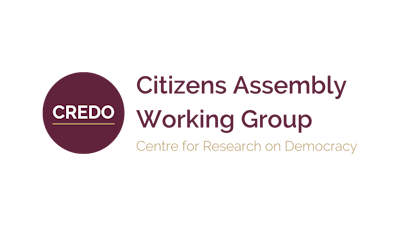
South Africa Citizens’ Assembly Working Group
South Africa
The Citizens’ Assembly Working Group is a research initiative of the Centre for Research on Democracy (CREDO). Bringing together African and international scholars, the group aims to investigate the relevance of citizens’ assemblies for the future of South African democracy and to design and convene the country’s first pilot assembly. It is the first African-led research initiative of its kind.
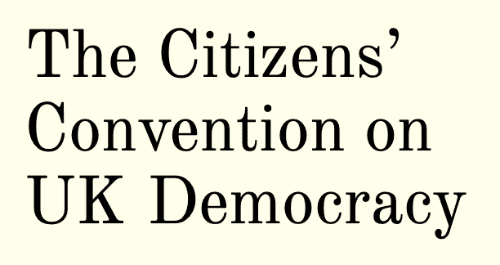
Citizens’ Convention on UK Democracy
United Kingdom
The Convention would take the form of an ambitious and inclusive deliberation on democratic reform in the UK, aimed at developing our democracy to be more open, accountable, receptive, participatory and transparent. The process would involve randomly selected citizens, convened to learn, discuss and make decisions on how our democracy can be improved – which would then go before Parliament.

Citizens Juries
United Kingdom
Citizens’ Juries put the public into public policy-making. A cross-section of the public are recruited (e.g. 18 people), provided with independently-validated information from expert witnesses, and deliberate together to find answers to the policy questions they have been posed.

Civic Genius
United States
We are a national nonpartisan organization that aims to rebuild American civic culture through everyday opportunities to learn and engage. Our focus is on deliberative public processes that create better policy and strengthen relationships between governments and the people they represent.
Founded in 2017, Civic Genius (previously known as Common Ground Solutions), has always been dedicated to highlighting where Americans agree on the issues and connecting people with policymakers to make the case that we can move forward together. In 2021, we expanded our mission to include an educational dimension that emphasizes civic confidence and citizen empowerment.

Consortium for Science, Policy & Outcomes
United States
A leader in convening citizen-focused technology forums throughout the US, the CSPO is an intellectual network aimed at enhancing the contribution of science & technology to society’s pursuit of equality, freedom, and quality of life. The CSPO creates knowledge and methods, cultivates discourse and fosters policies to help decision makers grapple with the immense power of emerging science & technology.
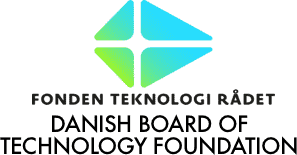
Danish Board of Technology Foundation
Denmark
Works to ensure that society’s development is shaped by informed and forward-looking cooperation between citizens, experts, stakeholders, and decision-makers. They have designed and implemented a range of different engagement and co-creation methods at the local, national, European and global level, including the Consensus Conference and World Wide Views.
Library
By our members
Here you can find some of the best materials that explore and promote deliberation by randomly-selected citizens
The Year in Deliberation 2024, Democracy R&D’s annual report on key trends and developments in deliberative democracy and the network
By Ieva Česnulaitytė, Felipe Rey, and Santiago Niño-Aguilar
The Challenge of Global Deliberative Democracy. Global citizens’ assemblies can democratise global governance. But how these assemblies are convened need to be democratised too
By Nakyung Lee, Susan
ReadThe Trouble with Elections: Everything We Thought We Knew About Democracy is Wrong
By Terrill Bouricius
Sortition: envisaging a new form of democracy that enables decision-making for long-term sustainability
By Terrill Bouricius
ReadDemocracy through Multi-Body Sortition: Athenian Lessons for the Modern Day
By Terrill Bouricius
ReadResearch Report on the Citizens’ Assembly of Scotland
By Stephen Elstub, Oliver EscobarStephen Elstub, Oliver Escobar, Ailsa Henderson, Tamara Thorne, Nick Bland, Evelyn Bowes
Read
Explore more
Get to know our work
Highlighted Projects
The network’s members work to increase civic lottery use, deliberation, and democratic reforms, locally to internationally. DRD’s areas of work are collaborative learning, community building, field building, and democracy change.
Get to know our our team
Our team
DRD’s diverse membership, comprising leading practitioners, advocates, civil servants, and academics, uniquely positions it to consolidate knowledge and promote evidence-based best practices

